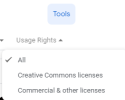Having no showroom, I often need product pictures that I can insert in my hardware quotations.
A nice picture at top of a quotation helps selling as the client can visualize the equipement.
For instance if selling a desktop, I like having pictures of the PC enclosure, the monitor, and possibly also the keyboard.
I mostly sell refurbished equipement and have no partnership with brands that would let me access some marketing materials.
Taking pictures myself is usually painful, because some equipment is stored remotely in my warehouse.
Furthermore it is time consuming as I have to post-process and make foreground extraction in Gimp.
I wonder if databases of IT product pictures do exist, including old products, that one can legally use, without being a distributor of the miscellaneous brands. Either free or paid.
A nice picture at top of a quotation helps selling as the client can visualize the equipement.
For instance if selling a desktop, I like having pictures of the PC enclosure, the monitor, and possibly also the keyboard.
I mostly sell refurbished equipement and have no partnership with brands that would let me access some marketing materials.
Taking pictures myself is usually painful, because some equipment is stored remotely in my warehouse.
Furthermore it is time consuming as I have to post-process and make foreground extraction in Gimp.
I wonder if databases of IT product pictures do exist, including old products, that one can legally use, without being a distributor of the miscellaneous brands. Either free or paid.

